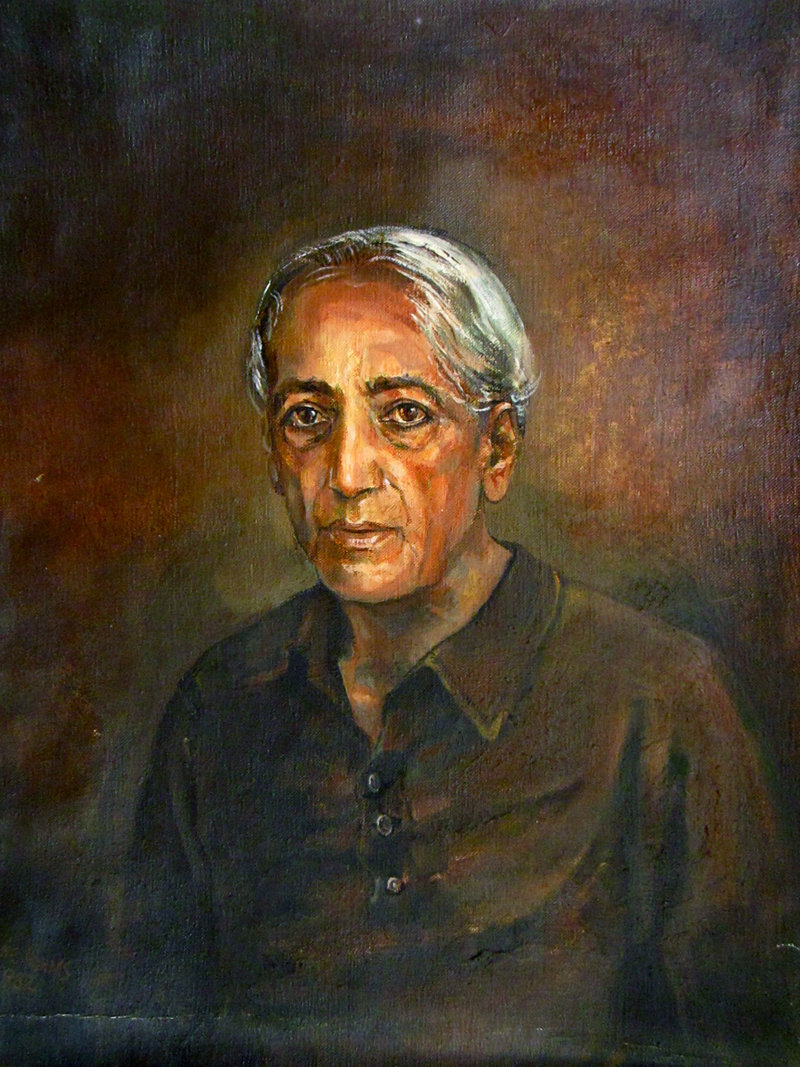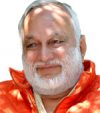
OR

More from Author
Krisha Gautami was born again in Andhra Pradhesh in a village called Madanpalle on May 11, 1895 into a simple Brahmin family.
Around 2,500 years ago a girl named Krisha Gautami was born into a poor family in India. She grew up to be a very beautiful woman and was married to a man from an aristocratic family. However, since she came from a poor family, she was greatly disrespected and humiliated by her in-laws. When she gave birth to a beautiful boy though, her family started giving her due respect. She was greatly attached to her son. But her happiness was short-lived. Suddenly her son died, and this brought forth great despair in her. Utterly devastated, she went around the village begging everyone to breathe life back into the dead body of her child.
The villagers felt only Buddha could restore peace in Krisha’s tormented soul. So a relative advised her to go and meet Gautam Buddha, who was on a retreat at Chetwan. Krisha rushed to meet Buddha immediately. The grief had stolen all beauty from her and all that remained of her was a ghastly and bedraggled apparition. She knelt at Buddha’s feet and started howling inconsolably. She begged him to make her child alive again. Seeing her tragic state, Buddha consoled her and said, “Don’t cry. I can make your son alive again but you have to bring me some yellow mustard seeds first.”
Hope glimmered on Krisha’s eyes again. She gathered herself and was about to leave. The yellow mustard seeds, after all, were not all that difficult to find. Just then Buddha said, “But there is a condition—you have to bring the mustard seeds from a house where nobody has ever died.”
Krisha went from house to house with her dead child. When she would reach a house, she would ask, “Nobody from this house has died, have they?”
But the answer would always be the same. She went around the city of Srawasti all day but couldn’t find one house where nobody had died. As dusk approached, she realized that somebody had died in each household, and that death was inevitable. When she realized the inevitability of death, certain calm gradually descended upon her. She then went to Buddha and surrendered to him, and became initiated into his sangha. Soon she achieved the state of shrotapanna, the state where one comes in contact with the source within oneself.
According to the famous mystic, Annie Besant, the same Krisha Gautami was born again in Andhra Pradhesh, India, in a village called Madanpalle on May 11th 1895 into a simple Brahmin family, as the modern day Indian mystic Jiddu Krishnamurti. This past May 11th was his 122nd birth anniversary.
Charles Webster Leadbeater and Annie Besant started training Krishnamurti to become the medium of Maitreya Buddha under strict rules and discipline. Krishnamurti was sent to the best institutions of England. Since an early age, he travelled around the world and gave discourses as the future medium of Buddha. In 1922, he became enlightened under a large Pepper tree in Ojai, California. The Theosophists had established an organization called the Order of the Star of the East to propound a new world religion with Krishnamurti as its leader. The members of this organization included more than 100,000 intellectuals and wealthy people.
On August 3rd 1929, during the Annual Star Camp of the Order of the Star of the East in Ommen, Holland, Krishnamurti was expected to address the audience as the world spiritual leader. But to everyone’s shock, he dissolved the Order with his historical declaration, “I maintain that truth is a pathless land, and you cannot approach it by any path whatsoever, by any religion, by any sect.” After this, he started travelling around the world as an independent thinker, and talked about the human being who is free from all conditioning and organized religion.
Krishnamurti was oblivious of his position or his influence over people. His simplicity and his courtesy remained unsoiled by his growing popularity. I consider him one of the most beautiful men of the last century. His body was frail and delicate, and yet it emanated such grace and beauty. While many were touched by his penetrating discourses, his physical beauty had also stirred many. George Bernard Shaw made a famous statement: “He is the most beautiful person I have ever met.” Khalil Gibran considered him the manifestation of “the God of Love”. Aldous Huxley, who was very close to Krishnamurti said, “When you listen to him, it’s like listening to Buddha himself.”
Throughout his life, Krishnamurti denounced organized religion, priests and religious fundamentalism. He did not expound any philosophy or religion, but rather talked on the things that concern all of us in our everyday lives. He explained astutely the subtle workings of the human mind, and pointed to the need for bringing to our daily lives a deeply meditative and spiritual quality.
The mysterious meetings
I have always felt a deep admiration for Krishnamurti. When he was still alive, I had tried to meet him many times. But somehow the meeting never happened.
In 2009, two decades after Krishnamurti left his body, I was in California conducting an Osho meditation camp. We were about a five hour drive away from the Pepper Tree Retreat at Ojai, the place where Krishnamurti attained enlightenment and spent many years of his life. Ojai is to the lovers of Krishnamurti what Srawasti is to the Buddhists.
I had read a lot about the place. Krishnamurti has often described the beautiful nature that surrounded the retreat in his journals. He had attained enlightenment under a larger Pepper tree, after which the retreat is named. Krishnamurti has described the moment of enlightenment as follows:
“I sat under the pepper tree which is near the house cross legged in the meditation posture. When I had sat thus for some time, I felt myself going out of my body, I saw myself sitting down with the delicate tender leaves of the tree over me… The fountain of Truth has been revealed to me and the darkness has been dispersed. Love in all its glory has intoxicated my heart; my heart can never be closed. I have drunk at the fountain of Joy and eternal Beauty. I am God-intoxicated.” (Mary Lutyens in Krishnamurti: The Years of Awakening)
Krishnamurti’s poetic description of Ojai had made a deep imprint on me. Naturally, I wanted to visit the Pepper Tree Retreat. We called the reception and booked four rooms. There was not much activity going on there, and the receptionist informed us over the phone that she only worked until 5.00 pm. She said that she would leave the keys in a basket in the reception desk. Since the Retreat only provided bed and breakfast, we had to arrange for dinner ourselves.
After a rather tiring drive, we arrived there at around nine in the evening. My friends who had accompanied me left for dinner at a nearby café but I stayed back as I couldn’t miss the exhilarating presence of the place. After my friends left for the café, I began my adventurous tour around the house. I had read so much about the place that every sight filled me with nostalgia.
The orange trees that spread all over the property left the air fragrant and tangy. The house was furnished tastefully in Scandinavian design. I walked through the corridor like an excited child on a treasure hunt. Each piece of furniture, each book, each tree spoke directly to me. When my friends arrived we called it a day and retired to our respective rooms. Although we had had a very tiring day, I didn’t feel the least bit exhausted or sleepy. I also felt a presence. It was strange because the presence was so palpable I felt I was continuously being watched over or followed by someone. Of course, there was no one around, but neither was I alone. I only fell asleep briefly as morning approached. The entire night I browsed through the library in the adjacent room. There were a good many books on many different genres including Krishnmurti’s favorite detective novels.
The next morning we had a very delicious organic breakfast. I also met Friedrch Grohe, the writer of the book The Beauty of the mountain: Memories of J Krishnamurti for the first time that day. Ours was an instant bonding. He loved narrating the incidents from Krishnamurti’s life, and I was an eager audience. He told me many anecdotes and fondly recalled many jokes that Krishnamurti used to crack.
He also showed me around Pine Cottage where Krishnamurti lived. The construction looked rather new so I enquired if Krishnamurti had lived there all his life. “No,” he replied. “He spent 30 years of his life in the same room where you stayed overnight.”
His reply left me speechless. I had many mystical experiences that night, all of which I cannot reveal here. What I can say is that I had always longed to meet him in person, but the meeting happened 24 years after he left his body in his private bedroom where he slept for 30 years. I bow down to that beautiful enlightened master and the ultimate truth that he had attained.
swamiarun@gmail.com
You May Like This

Why Federalism has Become Risky for Nepalese Democracy
The question arises, do federal or unitary systems promote better social, political and economic outcomes? Within three broad policy areas—political... Read More...

Nepal's Forests in Flames: Echoes of Urgency and Hopeful Solutions
With the onset of the dry season, Nepal's forests undergo a transition from carbon sinks to carbon sources, emitting significant... Read More...

'Victim blaming'- Nepali society's response to sexual violence
Multiple studies show that in most sexual assaults, the attacker is someone known and trusted by the victim. ... Read More...




Just In
- Govt receives 1,658 proposals for startup loans; Minimum of 50 points required for eligibility
- Unified Socialist leader Sodari appointed Sudurpaschim CM
- One Nepali dies in UAE flood
- Madhesh Province CM Yadav expands cabinet
- 12-hour OPD service at Damauli Hospital from Thursday
- Lawmaker Dr Sharma provides Rs 2 million to children's hospital
- BFIs' lending to private sector increases by only 4.3 percent to Rs 5.087 trillion in first eight months of current FY
- NEPSE nosedives 19.56 points; daily turnover falls to Rs 2.09 billion
















Leave A Comment